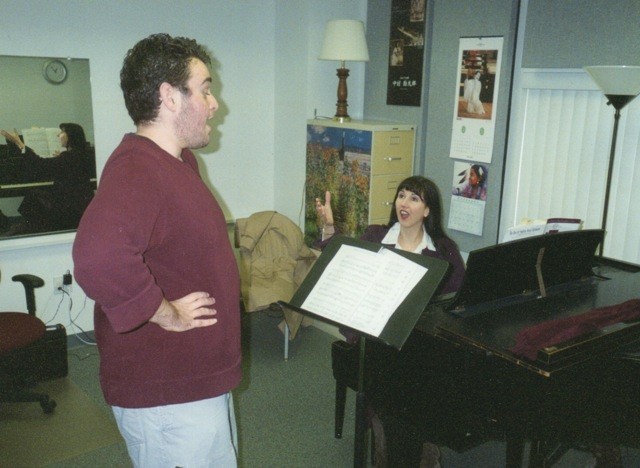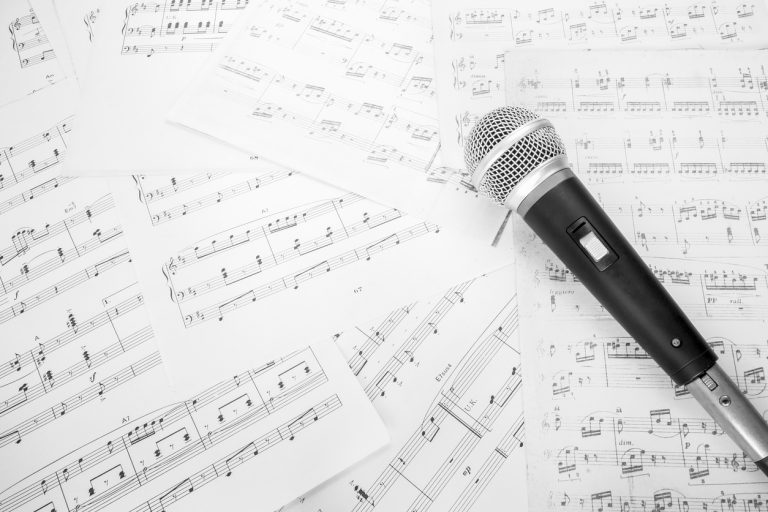Have Trouble Memorizing Music? 10 Great Tips to Make it Faster and Better!
Do you have trouble memorizing your music? Does it take a long time to memorize one song, or you just can’t seem to make the lyrics or melody “stick” in your brain, no matter what you do? Help is on the way! Here are 10 great tips for getting your music learned faster, and better!
1. Learn one verse at a time. It’s a big mistake to try memorizing an entire song all at once. Your brain likes to “compartmentalize” each new thing that it learns, where once a small chunk is learned first, it “sets” firmly in your brain. Then when you add something new the next day, the new chunk gets added to the old one without confusion. But if you try to cram in too many verses at once, you won’t remember them all, and you’ll mix up which one goes where, or worse, “mix and match” different parts of each in all the wrong places.
2. “Measure twice, cut once.” This is the rule that carpenters use when they have to cut a piece of wood, just to be extra careful that they don’t make a mistake. Likewise, listen to a good recording of your song twice, without singing or humming. This way it gets into your brain faster, and you won’t groove in any wrong notes by singing along before you actually know it!
3. Use all your senses. When you’re listening to the recording, also be looking at the sheet music at the same time, so you are involving your visual learning skills at the same time as your auditory (hearing) skills. Also, you can try to mouth the words (silently) while listening to the recording and looking at the sheet music, which then involves your kinesthetic (physical sensation) learning mode. Each of us has a dominant learning mode, but we draw on all three, so why not benefit from using them simultaneously, and be memorizing faster?
4. Use both halves of your brain. The right hemisphere of the brain tends toward processing less “concrete” things like visual images and music, while the left hemisphere processes more “tangible” items like words and numbers. You can use this to your benefit two ways. When first learning a new song, you can work just on the melody, using a neutral syllable like “da” or “la”. That way you can familiarize yourself with just that element alone. You can also work on the lyrics separately as well, reciting them to yourself like an actor’s monologue.This is especially helpful when you are trying to connect with the emotional motivation, or “subtext” behind each line, so that you can
give a truly accurate and emotionally connected performance.
An extra-important note: If you’re singing a song in a foreign
language, make sure you get a word-for-word translation and write that
translation ON YOUR MUSIC under each corresponding word. That
way, each time you are looking at the foreign language word, your brain
will register what it actually means, and you will memorize SO much
faster! NEVER use the English translation that is already there under
the music. It is rarely literal, and while in some cases it may be close,
sometimes it is not even in the ballpark! Be careful…
After practicing the words and music separately, once you know them
both a bit better, then combine them and start working on the song
the way you will actually sing it. This now involves both hemispheres
of the brain simultaneously, thus giving you what’s called “integrated
learning”, which will move your memorization along even faster.
5. Add physical gestures in your acting. The mind and body are on a
loop. A physical gesture can connect you to word memory in the same
way a thought can trigger a physical gesture. Plan out some subtle and
appropriate hand or body movements that go with certain words or
phrases, and write down this “blocking” on your sheet music. Practice
the movement with the word or phrase the same way every time, and
it will help trigger what you’ve memorized. So much of what happens
onstage looks like it is spontaneous, but you might be surprised at how
much is planned and rehearsed repeatedly!
6. Practice very frequently. Studies have shown that if you learn new
material and then work on it again within 24 hours, your retention will
be extremely high. Then keep drilling it every day. But, if you learn
something new and then don’t revisit the material within a day, with
each day that passes, your memorization drops more dramatically.
Frequency counts more than duration!
7. Use it as background music. All of us have crazy-busy lives these
days, so a great way to start getting that new song learned is to make
it background music while you are driving, doing the dishes, working
out, showering, or some other activity. Even though you are not
concentrating on it directly, it is seeping into your consciousness,
and when you finally do have the time to focus and work on it, you’ll
be pleased and surprised to see how much easier and faster you
will be memorizing!
8. Listen to the sound of your own voice. Studies have shown that if you
listen to a recording of yourself singing the song, you will actually
memorize it faster! But, only do this once you know the song
perfectly and are not making any errors. Otherwise, you may
groove in some wrong habits that will be hard to break later.
9. Do it right before bed and first thing in the morning. This works
great! Just before you got to sleep (preferably lying in bed) listen
to your recording while looking at the sheet music, and you can
sing along (if you know it well enough and if you’re not bothering
a bed mate) or mouth the words, too. Do this several times, just
before you drift off. The mind is more pliable and receptive right
before sleep, so the material should “stick” better. Then, when you
wake up in the morning, don’t get out of bed! Get out your recorder
and sheet music and do the same thing you did the night before.
Again, your just-waking-up sleepy brain is more flexible, and going
over what you did the night before will make it that much easier to
remember. Then get up and go have your coffee!
10. Finally, get rid of that sheet music and recording! You will never
know if you’ve really memorized it until you put that sheet music
down and see how you do without it. You have to get rid of that
crutch!
Likewise, stop singing with a recording that already has the vocal
on it. Use pre-existing recorded tracks now to practice with, to
make sure you can really hold your own without “leaning” on the
singer whose recording you were initially using for practice.
Singers have to memorize everything from one-line solos in choir, to
entire songs, full “sets” with a band, or even an entire opera! No matter
what type of memorizing challenge comes your way, now…
You will be armed and ready to tackle memorizing any piece of music!







